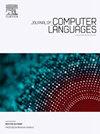一个通过技术和非技术技能评估开发人员代码理解能力的新框架
IF 1.8
3区 计算机科学
Q3 COMPUTER SCIENCE, SOFTWARE ENGINEERING
引用次数: 0
摘要
上下文:代码理解是一项必要的软件维护技能,其中技术技能通常被认为是评估开发人员熟练程度的主要基准,而忽略了非技术技能的重要作用。目的:在认知吸引力网络的启发下,通过整合技术和非技术技能,提出了一个衡量开发人员代码理解能力的通用框架,并对基于选择性技能的代码理解能力进行了实证研究。方法:该广义框架使用收集到的数据,分别对开发人员的技术和非技术技能进行评估,并计算其各自的指标,得出代码理解能力的总体度量,表示为理解度量指数(CMI)。此外,一项有158名参与者的实证研究评估了技术技能,包括代码理解、调试和完成,以及非技术技能,如解决问题、情感、长期记忆、信念、欲望、意图和承诺,以计算他们的整体代码理解熟练程度。结果:根据获得的与技术和非技术参数相关的指标值,研究确定了影响参与者绩效的多个因素,包括缺乏技术知识、依赖猜测、压力耐受、缺乏承诺和愿望、难以理解逻辑、无法回忆概念,并检查了其他影响因素。为了增强我们的结果,K-means聚类将参与者根据他们的表现分成三类。结论:通过解决技术专长之外的因素,将技术和非技术技能整合在一起,可以进行更准确的评估。框架可以帮助管理人员和导师识别长处和短处,允许任务分配与开发人员的长处保持一致,同时解决需要改进的领域。本文章由计算机程序翻译,如有差异,请以英文原文为准。
A novel framework for evaluating developers’ code comprehension proficiency through technical and non-technical skills
Context:
Code comprehension is an essential software maintenance skill, where technical skills are often considered the primary benchmark for evaluating developers’ proficiency, overlooking the significant role of non-technical skills.
Objective:
Our work aims to propose a generalized framework for measuring developers’ code comprehension proficiency by integrating technical and non-technical skills, inspired by cognitive attraction networks, and conducting an empirical study to evaluate code comprehension proficiency based on selective skills.
Methods:
The generalized framework evaluates developers’ technical and non-technical skills separately using collected data and computes their respective indices to derive an overall measure of code comprehension ability, represented as the comprehension measure index (CMI). Additionally, an empirical study with 158 participants assessed technical skills, including code understanding, debugging, and completion, alongside non-technical skills such as problem-solving, emotions, long-term memory, belief, desire, intention, and commitment to compute their overall code comprehension proficiency.
Results:
Based on the obtained indices values related to technical and non-technical parameters, the study identifies multiple factors affecting participants’ performance, including lack of technical knowledge, reliance on guesswork, stress intolerance, lack of commitment and desire, difficulty understanding logic, inability to recall concepts, and check other contributing factors. To enhance our results K-means clustering is done to group the participants into three clusters according to their performance.
Conclusion:
Integrating technical and non-technical skills enables a more accurate assessment by addressing factors beyond technical expertise. The framework can help managers and tutors identify strengths and weaknesses, allowing task assignments that align with strengths of developers while addressing areas for improvement.
求助全文
通过发布文献求助,成功后即可免费获取论文全文。
去求助
来源期刊

Journal of Computer Languages
Computer Science-Computer Networks and Communications
CiteScore
5.00
自引率
13.60%
发文量
36
 求助内容:
求助内容: 应助结果提醒方式:
应助结果提醒方式:


